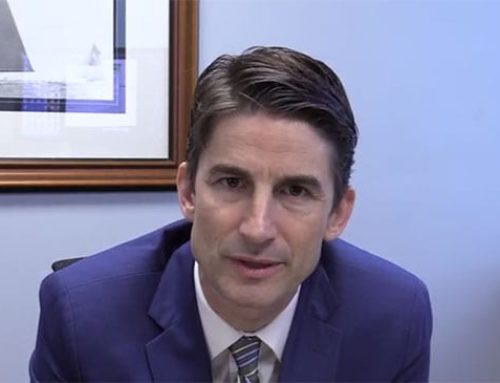More than ever, consumers have the free reign to voice their opinions about products via the Internet. Whether the consumer is completely satisfied or dissatisfied they still have the ability to let their voices be heard in the loudest way possible. Consumers who want others to know about their dissatisfaction create Internet “gripe” sites. “Gripe sites” are websites devoted to critiquing a person, place, corporation, or products. Further they allow other consumers to chime in on their unpleasant experiences with a company or product.
Companies have begun making attempts to shut down gripe sites by suing gripe site owners for defamation, trademark infringement, trademark dilution, libel and copyright infringement.
Issue: Whether Internet “gripe” sites created by dissatisfied consumers violates a trademark holders mark under the Landham Act?
Rule: In order for a plaintiff to prevail in a claim of either trademark infringement, unfair competition, or false designation of origin under 15 U.S.C §1125 (a) a plaintiff is required to show that its marks are valid and that a defendant’s use of those marks is likely to cause consumer confusion.
In assessing the likelihood of confusion, a court should generally consider the following factors established by Judge Friendly in a landmark case Polaroid Corp v. Polarad Elec. Corp., 287 F.2d 492. Among some of the factors are (1) strength of the senior user’s mark; (2) degree of similarity between the marks; (3) competitive proximity of the product and likelihood that the senior use will bridge the gap; (4) evidence of actual confusion; (5) defendants bad faith; (6) the quality of defendant’s product; and (7) sophistication of the relevant group.
It is important to keep in mind that the Polaroid Test focuses on the ultimate question of whether, looking at the products in their totality, consumers are likely to be confused.
Analysis: When applying the above rules to Internet gripe sites, there are some clear distinctions that can be made, but before jumping into that, lets take a look at a defense that is always a pertinent argument that can be made in support of internet gripe sites.
Although it may not be a defendant’s strongest argument after the passage of stringent intellectual property statutes; free speech continues to be held to a higher standard then any other federal statute. One can very well argue that under the First Amendment to the United State Constitution, one is permitted to give their opinion in any way they choose. Many Internet gripe sites have been defended successfully against companies using the First Amendment as their defense.
In order to bolster our defense against trademark infringements and the like, we must apply the Polaroid factors to show case that there is no likelihood of confusion created by the gripe sites. Internet gripe sites usually will specify in their domain name that they are not affiliated with the company; for instance ballytotalfitness-ripoff.com or pepsi.pissedconsumer.com. Here, the domain name creator is purposefully not connecting themselves to the company, and the use of the trademark does not present a likelihood of confusion. Furthermore, the content on the page is significant to defending a gripe site. If one places negative content on the website about a certain company it is reasonable for a consumer to realize that site is not affiliated with the company. Moreover, gripe sites usually do not have goods or services for sale, this would constitute another factor that tips in favor of gripe sites.
Furthermore, lack of evidence to suggest that confusion actually did occur is also in support of our position. When no one can come forward and physically show that a consumer was confused it shows that there is no likelihood of confusion. Lastly, a defendant’s bad faith is also a factor, which assists in the determination of creating a likelihood of confusion.
Conclusion: As one can see Internet gripe sites have a very low chance of infringing on a companies trademark. There are high hurdles that must be met by the mark holder in order to successfully win a claim. For now it seems that Corporations will have to continue to make better efforts to keep their consumers happy.
Fresno Branch:
466 W. Fallbrook,
Suite 102
Fresno, CA 93711
T: (559) 431-4888
F: (559) 821-4500
San Diego Branch:
10509 Vista Sorrento Pkwy., Suite 430
San Diego, CA 92121
T: (619) 399-7700
F: (619) 819-8400
The content of this weblog (blog) contains general information and may not reflect current legal developments, verdicts, or settlements. Webb & Bordson, APC expressly disclaims all liability in respect to actions taken or not taken based on any or all of the contents herein.”
NOTICE OF CONFIDENTIALITY: This confidential E-mail is from a law firm. It is covered by the Electronic Communications Privacy Act, 18 U.S.C. Sections 2510-2521 and is legally privileged. If you received this transmission in error, please reply to the sender to advise of the error and delete this transmission and any attachments.
IRS CIRCULAR 230 DISCLOSURE: To ensure compliance with the requirements imposed by the IRS, we inform you that any U.S. federal tax advice contained in this communication (including any attachments) is not intended or written to be used, and cannot be used, for the purpose of (i) avoiding penalties under the Internal Revenue Code or (ii) promoting, marketing or recommending to another party any transaction or matter addressed herein.


